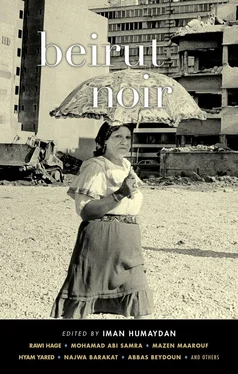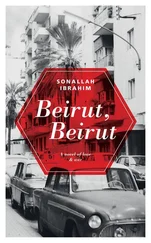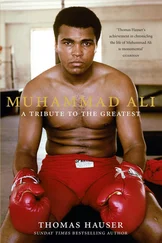Muhammad Abi Samra - Beirut Noir
Здесь есть возможность читать онлайн «Muhammad Abi Samra - Beirut Noir» весь текст электронной книги совершенно бесплатно (целиком полную версию без сокращений). В некоторых случаях можно слушать аудио, скачать через торрент в формате fb2 и присутствует краткое содержание. Город: New York, Год выпуска: 2015, ISBN: 2015, Издательство: Akashic Books, Жанр: Детектив, на английском языке. Описание произведения, (предисловие) а так же отзывы посетителей доступны на портале библиотеки ЛибКат.
- Название:Beirut Noir
- Автор:
- Издательство:Akashic Books
- Жанр:
- Год:2015
- Город:New York
- ISBN:978-1-61775-344-2
- Рейтинг книги:3 / 5. Голосов: 1
-
Избранное:Добавить в избранное
- Отзывы:
-
Ваша оценка:
- 60
- 1
- 2
- 3
- 4
- 5
Beirut Noir: краткое содержание, описание и аннотация
Предлагаем к чтению аннотацию, описание, краткое содержание или предисловие (зависит от того, что написал сам автор книги «Beirut Noir»). Если вы не нашли необходимую информацию о книге — напишите в комментариях, мы постараемся отыскать её.
Most of the writers in this volume are still living in Beirut, so this is an important contribution to Middle East literature — not the “outsider’s perspective” that often characterizes contemporary literature set in the region.
Beirut Noir — читать онлайн бесплатно полную книгу (весь текст) целиком
Ниже представлен текст книги, разбитый по страницам. Система сохранения места последней прочитанной страницы, позволяет с удобством читать онлайн бесплатно книгу «Beirut Noir», без необходимости каждый раз заново искать на чём Вы остановились. Поставьте закладку, и сможете в любой момент перейти на страницу, на которой закончили чтение.
Интервал:
Закладка:
He walks and tries to analyze the reasons for his strange transformation, rationally and scientifically. He’s unable to produce a logical analysis. Was that the dream? He keeps walking, keeps thinking, saying hello to the leader’s guards and the army troops who protect the area, the militarized zone.
Everyone here knows him. “Hello, doctor,” “Greetings, doctor.” He always returns these greetings.
It has only been four days since he changed, since the young woman arrived at the hospital.
He will be late meeting Nevine. He’s no longer enthusiastic about their passion for each other. He had once nearly gone mad wanting to be near her. After he separated from his wife, he spent two years without thinking about throwing himself into another relationship. He was very cautious, fearing a drift toward another cycle of blame and reproach because of his continual absences. His time was not his own. He gave his life to time. He didn’t fight it, wasn’t able to fight it or laugh at it, because his profession was saving the lives of his patients and he wouldn’t give up on the promises he made to them.
He forgets himself between the hospitals. He faces death boldly — this he fights, courageously holding onto his sick patients’ bodies to keep them alive. He takes dangerous risks and triumphs. He gambles and wins. When he loses, he’s expended all of his efforts. He would have fought until the end and surrendered nobly. Now when he looks at his body in the mirror, he stares at his face, searching for some kind of change. He asks: What has changed? Where did this fear come from? Who injected me with this horror? He starts to be scared of confrontation, scared to confront death.
He decides to amble around on the nearby streets. He doesn’t answer Nevine’s call. The ringing continues but he doesn’t hear it. He’s lost in his footsteps. He walks forcefully, drowning in his movement. Sinking. He was in the emergency ward the night they brought the young woman in. He saw his entire life in her face. He saw the secret of life in it. From the moment he beheld it, her face never left him. There were contusions and wounds above her left eye. He knew the face but didn’t know where or when he’d seen it. It was as if he knew it well, as if he were a part of it. Her body was clinging onto the thread of life. She hadn’t died yet. He froze his movements. Of course he didn’t want her to die. But the reason was personal and not merely humane, this wasn’t related to his professional duties alone. He wanted her to live for him. He wanted her.
She was wounded by gunfire from the war in a “mixed” alleyway whose residents belonged to different sects and different parties. A battle of flags was taking place in the alleyway. Which party would raise its flags? You can’t take a battle of flags lightly in a potentially explosive neighborhood. They set off wars and bury young bodies and dreams. That night, the young woman had gone out to her car. At that very moment, bullets rumbled and blood streamed out of a vehicle near hers, quickly mixing with the autumn rain. Bullets penetrated the roof of the car next to hers and the reply came quickly. In shock because of what was happening, the young woman stayed in her car, covered her head with her hands, and bent over the steering wheel. But the gunshot pursued her. It didn’t settle in her lung, though she couldn’t escape either. She sank into a bent position and then into the calmness of the moment. Everything stopped, even the bullets. Her movements stopped. Her tranquil body stopped fighting against the gunfire crossing from one side to the other. They brought her to the hospital. They brought her to him.
He walks and listens to the sound of thunder. It’s not yet raining. It doesn’t rain gently here, even the rain has become violent. He walks, her face with him. If she woke up from her coma, he’d tell her his life. He’d tell her that he was born to see her.
He smells the calming scent of jasmine and descends toward the most beautiful of all Beirut’s alleyways. Yet he’s still battling a strange sensation of fear. He pushes away a lingering feeling that the leader’s ferocious dogs, the guard dogs, are chasing him. He tells himself that he can feel their panting and that they are silently pursuing him. Then he tells himself: There are no dogs here. The dogs are sleeping in their mansions. He walks cautiously, aware of the crazy traffic, frolicking cars driven in the absence of any laws regulating the flow of traffic and protecting pedestrians from gratuitous death. How many lives have been lost in his hands before he could save them?
Why does he dream of her? Since he first saw her, he has dreamed of her every night. He feels that he has known her since birth, that her soul is like his.
He won’t go back home now. Nevine will call him. Perhaps she’ll decide to visit him or propose dinner together. He won’t answer if she calls him again. She’ll think he’s at the hospital.
He turns left toward Bliss Street. Every time he passes by here he reads the writing on the wall of the medical gate entrance to the American University of Beirut’s campus. They’re all words that rhapsodize about old Beirut, the Beirut that has lost its architectural identity. He once read on one of the walls the expression, Beirut Is not Dubai . He also glimpses love stories written inside giant hearts sketched on the wall and the names of dead singers under drawings of their likenesses. As he approaches the wall, he glances at the top of the Gardenia Building, where Kamal — who once was his professor and now is his friend — lives. Dr. Kamal sleeps on the sixth floor but mostly lives in his clinic on the first floor. His age is now so advanced that practicing his profession has become almost dangerous, both for him and his patients. Dr. Rashid worries about him and finds it hard to convince his friend to retire. How can he ask him to retire from his most precious identity?
The lives of the AUB students add color to Bliss Street. It’s the most beautiful street in Beirut in his opinion, despite its terrible traffic, lights, and noise. Heavily armed soldiers stand on the sidewalk. He’s used to seeing this and always wonders if it doesn’t frighten tourists and foreign students. The war is coming, the war never left. He feels he is always at war, fighting in wartime and fighting in peacetime. There they are imposing their clout by carrying their “legal” weapons. We should always be precise in describing the weapons used: there are legal and illegal weapons which different factions proudly use to govern their relationships — wars that are sometimes cold and sometimes hot.
The character of the weapon that disfigured her face — a face of such beauty he’d never seen before — doesn’t matter to him. She will live. She must live so he can tell her that they’d met before. He would look after her. He fears he will lose her. He is now officially afraid of death, fearing the death of others before his own death. Previously he had enjoyed immunity to death. Now he was losing his immunity and she was the reason. He had resolved this matter after making peace with death.
But now, faced with death, he feels impotent. It’s a game he hates, the game of life. He rejects it, but cannot elude it.
He left her sleeping in the frost, alone.
He passes by this place every day in his car. Today he is walking on the sidewalk which witnessed the most beautiful moments in his life, the series of romances which he experienced during his first years at the university. He walks, remembering the names of restaurants and bookshops that used to be here and have now had their spots taken by other restaurants, restaurants with global or “globalized” names that he can’t enter. He won’t forget his places — Uncle Sam’s bookshop and Uncle Sam’s restaurant too, Basha restaurant and the B-25 café. He heard so much about the restaurant called Faisal’s, which in his father’s years at the university was more famous than the university itself. It was just across from the main gate; writers and intellectuals gathered there alongside university students who were, according to his father’s recollections, “more mature than students today — they went to the university wearing suits, respecting the opportunities made available to them, the opportunity to receive a university education.” He wondered about his father’s concern with the suits worn by his generation of university students, and the relationship between these suits and their academic achievements.
Читать дальшеИнтервал:
Закладка:
Похожие книги на «Beirut Noir»
Представляем Вашему вниманию похожие книги на «Beirut Noir» списком для выбора. Мы отобрали схожую по названию и смыслу литературу в надежде предоставить читателям больше вариантов отыскать новые, интересные, ещё непрочитанные произведения.
Обсуждение, отзывы о книге «Beirut Noir» и просто собственные мнения читателей. Оставьте ваши комментарии, напишите, что Вы думаете о произведении, его смысле или главных героях. Укажите что конкретно понравилось, а что нет, и почему Вы так считаете.












